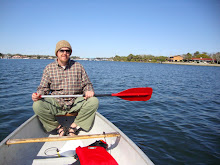The Associated Press recently reported that the President of the Un of Richmond, William Cooper, was pressured into resigning early because he made some comments that students and alums of the school found offensive. These students and alums combined forces with the University faculty and began a full-scale campaign against Cooper--complete with a website, online petition, and anti-Cooper paraphernalia (http://www.firecooper.com/main.html).
Reading about this campaign I was reminded of efforts by a group of Berea College students last spring. These students put together a well-organized a campaign [called “10x10” to reflect its goal of meeting 10% of BC’s energy from renewable sources by 2010] to convince the BC administration to begin placing solar panels on its buildings and to begin planning for the future procurement of renewable energy. As part of their efforts, the students scheduled individual meetings with administrators, organized an energy conservation campaign to help offset the additional initial costs of renewables, and solicited donations from BC staff, students, and faculty. While the administration eventually agreed to pay for the remainder of the solar array, and to place the array on the central “Alumni Building,” it balked at the rest of the proposal, including budgeting for future alternative energy installations and establishing an ongoing campus committee to study and implement renewable energy.
While the 10x10 participants should certainly be proud of their efforts, I couldn’t help but wonder how much more successful this group (and other, similar efforts) might have been had they of accessed the significant and growing population of BC alums who are sympathetic to issues of sustainability and social justice. As a “veteran” student organizer, I’ve witnessed firsthand how 99% of student activists end up losing touch with ongoing activist efforts at their alma mater. Within a few years of graduation, after their younger student activist friends have also moved on, the only real connection these alums are able to maintain are with the slick, image-conscious Alumni Relations office. So alums, who often bring significant amounts of prestige and money to their alma mater, receive a very one-sided and massaged image of the goings-on there, such as those provided in the alumni magazine and donor appeals. This situation is especially problematic for politically progressive alums, many of whom look to their student activist experiences as formative but who are wary of handing over money to be administered by the same bureaucratic structures they spent so much time opposing.
A possible solution to this quandary: Progressive Alum Associations. As I move on from my college experiences, I know I’m going to be much more interested in hearing from the activist groups on campus, from the gay-straight alliance, the Black Cultural Center, the Women Studies Program, and the Sustainability & Environmental Studies Program than I am the Alumni Relations office. I know I’ll want to use my status as a BC alum to support these groups’ ongoing efforts. I also know that while I’ll probably never give BC a dime directly so long as they invest their endowment in a slew of nasty corporations, I’d be more than happy to donate my hard-earned loot directly to initiatives that support sustainability and social justice.
So what might such Progressive Alum Associations look like? Well, I’ve started sketching out some initial visions along with current BC student and 10x10 activist Danielle Capillo. I’m utilizing CampusActivism.org as a host for both a basic webpage and listserv for the group (http://www.campusactivism.org/displaygroup-1669.htm & http://www.campusactivism.org/displayemaillist-90.htm), and its stated purposes are to enable progressive BC alums to:
1) support current BC student activists and help them connect with grassroots political work beyond college
2) pressure the BC to make socially and environmentally responsible decisions
3) network with one another
I also believe that if Progressive Alum Associations were to spring up more widely, they could serve as an excellent vehicle for supporting regional and national formations of youth and student activist efforts (e.g., the Student Environmental Action Coalition, United Students Against Sweatshops, etc.).
In addition to oppression based on race, gender, sexual orientation, class, and other identities, it’s important to keep in mind how young people are systematically oppressed and excluded from political opportunities at liberation. Yet unlike our other identities, youth is one that we will all eventually leave behind. Before I ever went to college, my initial political awakening came about through participation in the youth liberation movement. As I “retire” from active participation in such efforts, I maintain that there is no better way to keep youth empowerment at the forefront of our thinking than to remain connected and accountable to youth-led movements for social and environmental justice. In order to fully understand and support their efforts, we have to figure out ways to keep the dialogue going. Progressive Alum Associations are one vehicle for accomplishing this aim, and for continuing to change the educational institutions that will shape the lives of future generations.
Subscribe to:
Post Comments (Atom)


No comments:
Post a Comment